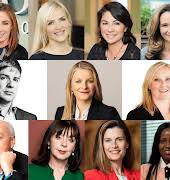
It’s time to start recognising female leaders boost profits and engage employees
By Colette Sexton
12th Apr 2018
12th Apr 2018
Successful women don’t like to see other women succeed, isn’t that the belief that society hammers into us repeatedly? Women are mean bosses, they hold other women back, they pull up the ladder behind them, or at least that’s what we are told. But that is not my experience, and according to research, it is not true.
Employees who work for a female manager are actually more engaged, on average, than those who work for a male manager, according to research from consulting company Gallup. Employees who work for a female manager are 1.26 times more likely to strongly agree that “there is someone at work who encourages my development” compared to those who work for a male manager, Gallup found in 2015.
Closer to home, Bank of Ireland recently appointed Francesca McDonagh as chief executive. She is the first female leader of an Irish bank and this week Bank of Ireland took a massive step towards gender parity. Bank of Ireland has a 55:45 female-to-male ratio among its staff. However, its management and leadership teams are just 36 per cent female. Now the bank has committed to a 50/50 gender ratio in all new management and leadership appointments by the end of 2021. 2021 is soon! It is not some far away distant target that the bank will never be held accountable to.
At the launch of the bank’s Responsible Business report on Monday, Francesca McDonagh said: “If we want to achieve our purpose, which is to enable customers, colleagues and communities to thrive, then we must reflect the diversity of the customers we serve,” she said. “As an organisation advocating for better gender balance in business we have set ourselves a goal of achieving an equal gender ratio.”
This is a clear example of a successful woman supporting other women. Some people, including women, baulk at the thoughts of gender quotas or gender ratios. They claim that they do not want to be promoted just because of their gender. What a lovely idea, until you realise that men, particularly white men, have gotten ahead in the world for centuries because of their gender.
Sitting around hoping the world will even out its gender inequality by itself is foolish – and it is bad for business. Female leaders boost profits – companies with 30 per cent female leadership can expect to add up to six percentage points to their net profit margin when compared with a similar business with no female leaders, according to a study of over 21,000 public companies in 91 countries by the Peterson Institute and EY last year. The benefits to more female leaders are clear.
We need to stop talking female leaders down and start holding them up as change-makers in the current male-dominated world. Francesca McDonagh is only in the job six months and is already introducing positive change. There are hundreds of other female leaders out there that will do the same. It is time to start cheering them on.























